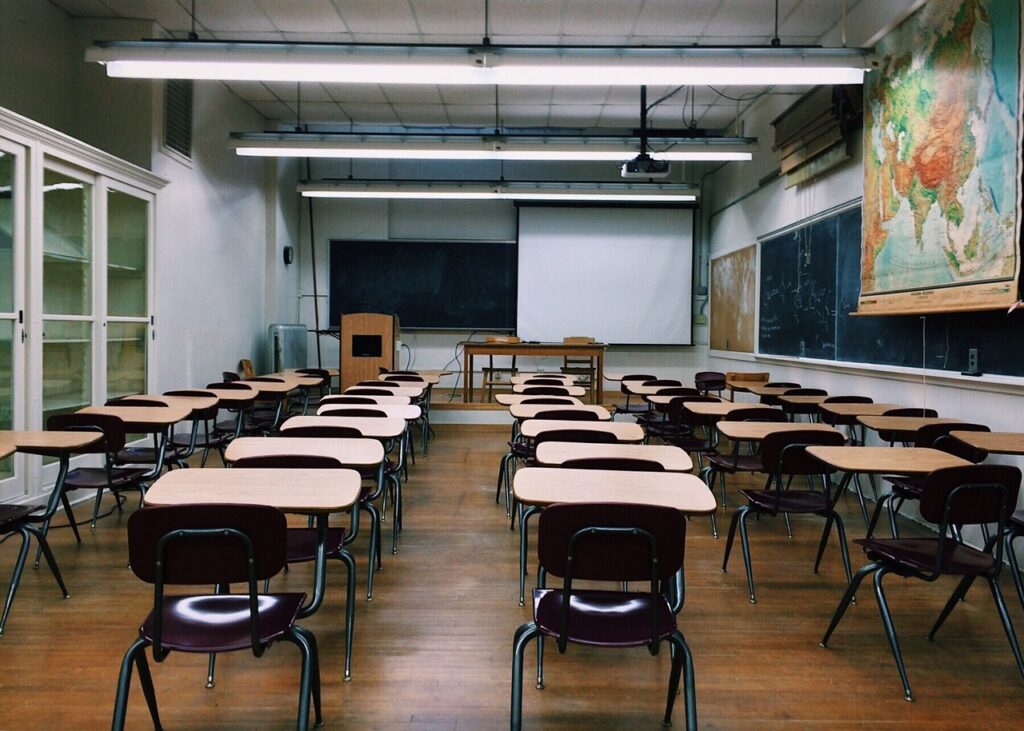A few weeks ago, my social media feeds lit up with posts about President-Elect Donald Trump shutting down the Department of Education. His general plan is to send regulation of education back to the states. Supporters argue that the Department of Education has done a poor job. They cite the fact that American children don’t rank well compared to children of other nations (we’re ranked 12th according to U.S. News & World Report).

“Might” isn’t good enough
I’ve always been a big-picture thinker. From that standpoint, one of my biggest irritations is the the idea that, under the feeling that the issues are too difficult or complicated to tackle, we would not fix broken systems toward long-term gains. Simply coping with what doesn’t work is not problem-solving. From that perspective, I admire the fact Trump is willing to make big changes where they’re necessary, even if they’re controversial. I do not have a problem with breaking what’s already broken.
But I’ve been transparent that I do not (and never will) support Donald Trump. One of the reasons is that, even if I could get past what I perceive to be massive ethical and moral failings, the implementation of policies often seems to happen before all of the pragmatic implications are addressed. It’s true that the current speed of government progress is abysmal and needs a kick in the pants — our inability to work together and find common ground within issues has created a severely impeding, highly negative, and unnecessary degree of friction.
But it’s concerning that, with many proposed policies, it’s not clear what the real-life ramifications are going to look like, especially for specific vulnerable communities. Conjecture abounds, and to me, “might” isn’t good enough — I’ve worked with professionals within my writing career long enough to understand that real strategy defines risks and lays out safeguards with clear allocation of resources. That principle ought to hold true regardless of which party holds political control.
The spiderweb of factors aside from the Department of Education that influence the ability to learn is massive
So, as I consider Trump’s proposal of dismantling the DoE and sending most educational control to the states, I worry that perhaps supporters of the proposal are too quick to blame the DoE in entirety for our educational woes.
It’s true that there are serious issues related to the DoE — part of the reason kids now are educated toward standardized tests (which limit independent thinking) is that the tests connect to the amount of federal funding the schools get. And as a parent whose own kids do significantly better outside the traditional classroom, I can get behind Trump’s concept for allowing more choice within education, allowing funds to transfer to options like charter schools and homeschooling.
But the DoE alone can’t be blamed for how poorly kids perform. There are a host of social issues that can contribute, such as the amount of crime or community support in a given region — the classic 1989 film Lean on Me portrays this reality with particular emotional power.
We’re still learning how technological shifts and dependence influence cognitive development and figuring out how to integrate digital tools into academics in a healthy and effective way.
We note how important teachers are but then don’t pay them adequately, which has created a horrific cycle we’ve struggled to stop — the fewer people enter the profession, the higher the teacher-student ratio is, which contributes to burnout, which lowers the number of people who enter the profession.
As the costs of higher education rise and issues like climiate change create high stress, many students aren’t sure of how much academics matter, especially as gig work increases in popularity due to both preference and need.
And as parents try to make ends meet against still-high inflation, many caregivers are overwhelmed picking up the slack within the current labor shortage, and they struggle to offer the academic support kids need to do well.
To fix education, we all have to participate
So, I do not argue that education reform is unnecessary. Rather, in my big-picture thinking, I argue that education reform is not only about revamping federal versus state oversight. It requires a larger cultural reckoning and modification of multiple systems that normally would be seen as outside of academia. If we really want our kids to do better in school, we have to build the full environment that actually allows it. That, importantly, is not up to only the Republicans. It’s up to all of us.
